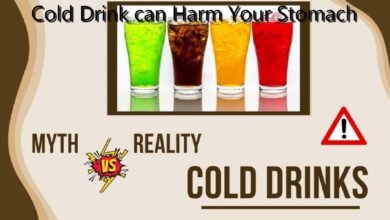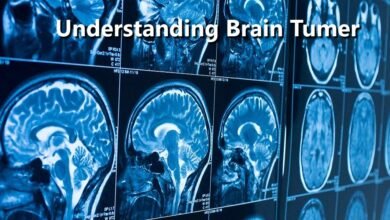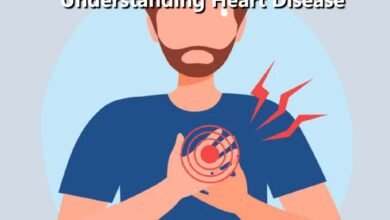
Food is a basic necessity of life, providing us with the nutrients and energy we need to stay healthy and function properly. However, the food we eat can also contribute to the development of diseases, such as heart disease, diabetes, and cancer. A poor diet can increase our risk of developing these conditions, while a healthy diet can help prevent and manage them.
In this article, YezzBuzz will explore the relationship between food and disease and tell how diet can affect your health, and provide tips on how to make healthier food choices to reduce your risk of illness.
The Impact of Diet on Disease
The food we eat can have a significant impact on our health. Here are some of the ways in which diet can affect our risk of disease:
How Diet Can Affect Your Health and cause Heart Disease
A diet high in saturated and trans fats, sodium, and added sugars can increase your risk of developing heart disease. On the other hand, a diet rich in fruits, vegetables, whole grains, lean proteins, and healthy fats can help prevent heart disease.
How Diet Can Affect Your Health and cause Diabetes Disease
A diet high in sugar and refined carbohydrates can contribute to the development of type 2 diabetes. On the other hand, a diet rich in fiber, whole grains, and lean proteins can help prevent and manage diabetes.
How Diet Can Affect Your Health and cause Cancer Disease
A diet high in processed and red meat, saturated and trans fats, and alcohol can increase your risk of developing certain types of cancer. On the other hand, a diet rich in fruits, vegetables, whole grains, and lean proteins can help prevent cancer.
Diet can Affect Your Health

The food you eat has a direct impact on your health and well-being. Your diet provides your body with the nutrients it needs to function properly, and the wrong food choices can contribute to the development of a variety of health conditions.
A diet high in sugar, saturated and trans fats, and processed foods can increase your risk of developing chronic diseases such as obesity, diabetes, and heart disease. These foods can contribute to weight gain, high cholesterol, high blood pressure, and other health issues.
On the other hand, a healthy, balanced diet can reduce your risk of developing chronic diseases and improve your overall health. A balanced diet should include a variety of nutrient-dense foods, including fruits, vegetables, whole grains, lean proteins, and healthy fats. These foods provide your body with the nutrients it needs to function properly and can help reduce inflammation in the body, which is a key contributor to many chronic diseases.
In addition to reducing your risk of chronic disease, a healthy diet can also improve your energy levels, mood, and overall quality of life. Eating a balanced diet can help you maintain a healthy weight and reduce your risk of developing obesity and related health problems.
It’s important to note that everyone’s nutritional needs are different, and there is no one-size-fits-all diet that works for everyone. It’s important to work with a healthcare provider or registered dietitian to develop a personalized nutrition plan that meets your individual needs and goals.
Making Healthy Food Choices
Making healthy food choices is essential for reducing your risk of developing diseases. Here are some tips for making healthier choices:
Choose Whole Foods
Whole foods are foods that are as close to their natural state as possible, such as fruits, vegetables, whole grains, and lean proteins. These foods are nutrient-dense and can help you maintain a healthy weight and reduce your risk of disease.
Limit Processed Foods
Processed foods are often high in sugar, salt, and unhealthy fats, and can contribute to the development of diseases such as heart disease and diabetes. Limit your intake of processed foods and choose whole foods instead.
Watch Your Portion Sizes
Eating too much of any type of food can lead to weight gain, which can increase your risk of developing diseases such as heart disease and diabetes. Pay attention to your portion sizes and eat until you are satisfied, not overly full.
Limit Added Sugars and Salt
Added sugars and salt are often found in processed foods, and can contribute to the development of diseases such as heart disease and diabetes. Limit your intake of these ingredients by choosing whole foods and cooking at home.
Significance of Diet on Disease
Diet plays a significant role in the development and prevention of disease. What you eat can have a major impact on your overall health and well-being. A healthy, balanced diet can reduce your risk of developing chronic diseases such as diabetes, heart disease, and certain types of cancer.
A balanced diet should include a variety of nutrient-dense foods, including fruits, vegetables, whole grains, lean proteins, and healthy fats. These foods provide your body with the nutrients it needs to function properly and can help reduce inflammation in the body, which is a key contributor to many chronic diseases.
On the other hand, a diet high in sugar, saturated and trans fats, and processed foods can increase your risk of developing chronic diseases. These foods can contribute to weight gain, high cholesterol, high blood pressure, and other health issues.
In addition to reducing your risk of chronic disease, a healthy diet can also improve your overall quality of life. Eating a balanced diet can give you more energy, improve your mood, and help you maintain a healthy weight.
It’s important to note that while diet plays a significant role in disease prevention, it is not the only factor. Other factors such as genetics, lifestyle habits, and environmental factors can also contribute to the development of disease.
In conclusion, the significance of diet on the disease cannot be overstated. Eating a healthy, balanced diet is essential for maintaining good health and reducing your risk of developing chronic diseases. By making simple changes to your diet, you can improve your overall health and well-being.
FAQs
Q: Can a healthy diet cure disease?
A: While a healthy diet can help prevent and manage the disease, it is not a cure for all illnesses.
Q: Is it okay to eat junk food in moderation?
A: While it is okay to indulge in junk food occasionally, it should not be a regular part of your diet.
Q: Are there any foods that can prevent cancer?
A: While no single food can prevent cancer, a diet rich in fruits, vegetables, whole grains, and lean proteins can help reduce your risk.
Conclusion
The food we eat plays a crucial role in our overall health and can significantly impact our risk of developing diseases. In conclusion, your diet can have a significant impact on your health and well-being. By making healthy food choices and limiting your intake of unhealthy foods, you can reduce your risk of developing chronic diseases and improve your overall quality of life.












3 Comments